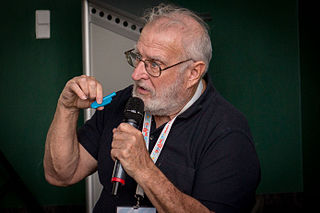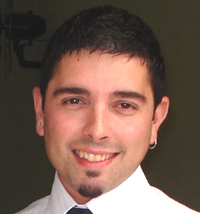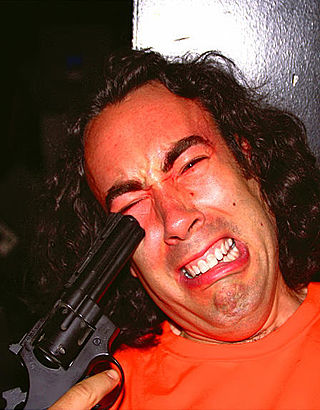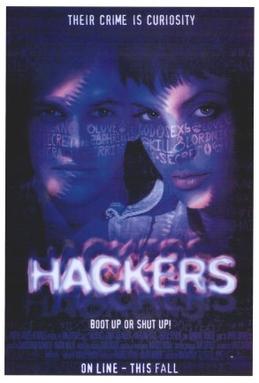Related Research Articles

A hacker is a person skilled in information technology who achieves goals by non-standard means. The term has become associated in popular culture with a security hacker – someone with knowledge of bugs or exploits to break into computer systems and access data which would otherwise be inaccessible to them. In a positive connotation, though, hacking can also be utilized by legitimate figures in legal situations. For example, law enforcement agencies sometimes use hacking techniques to collect evidence on criminals and other malicious actors. This could include using anonymity tools to mask their identities online and pose as criminals.
Phreaking is a slang term coined to describe the activity of a culture of people who study, experiment with, or explore telecommunication systems, such as equipment and systems connected to public telephone networks. The term phreak is a sensational spelling of the word freak with the ph- from phone, and may also refer to the use of various audio frequencies to manipulate a phone system. Phreak, phreaker, or phone phreak are names used for and by individuals who participate in phreaking.

John Thomas Draper, also known as Captain Crunch, Crunch, or Crunchman, is an American computer programmer and former phone phreak. He is a widely known figure within the computer programming world and the hacker and security community, and generally lives a nomadic lifestyle.
Masters of Deception (MOD) was a New York–based group of hackers, most widely known in media for their exploits of telephone company infrastructure and later prosecution.
The Great Hacker War was a purported conflict between the Masters of Deception (MOD), an unsanctioned splinter faction of the older hacker group Legion of Doom (LOD), and several smaller associated groups. Both primary groups involved made attempts to hack into the opposing group's networks, across the Internet, X.25, and telephone networks. In a panel debate of The Next HOPE conference, Phiber Optik re-iterated that the rumored "gang war in cyberspace" between Legion of Doom and Masters of Deception never happened, and that it was "a complete fabrication" by the U.S attorney's office and some sensationalist media. Furthermore, two other high-ranking members of the LOD confirmed that the "Great Hacker War" never occurred, reinforcing the idea that this was just a competition of one-upmanship and not a war.
Freedom Downtime is a 2001 documentary film sympathetic to the convicted computer hacker Kevin Mitnick, directed by Emmanuel Goldstein and produced by 2600 Films.

Mark Abene is an American information security expert and entrepreneur, originally from New York City. Better known by his pseudonym Phiber Optik, he was once a member of the hacker groups Legion of Doom and Masters of Deception.

David Blake, also known as StankDawg, is the founder of the hacking group Digital DawgPound (DDP) and a long-time member of the hacking community. He is known for being a regular presenter at multiple hacking conferences, but is best known as the creator of the "Binary Revolution" initiative, including being the founding host and producer of Binary Revolution Radio, a long-running weekly Internet radio show which ran 200 episodes from 2003 to 2007.
Chris Goggans is an American hacker, a founding member of the Legion of Doom group, and a former editor of Phrack magazine. He is known as an expert in security as well as for his statements on hacker ethics and responsibility.
The Digital DawgPound is a group of hackers, best known for a series of articles in hacker magazines such as 2600: The Hacker Quarterly and Make, the long-running webcast Binary Revolution Radio, and a very active set of forums with posts from high-profile hackers such as Strom Carlson, decoder, Phiber Optik and StankDawg. The stated mission of the DDP is to propagate a more positive image of hackers than the negative mass media stereotype. The group welcomes new members who want to learn about hacking, and attempts to teach them more positive aspects and steer them away from the negative aspects, by reinforcing the hacker ethic. Their goal is to show that hackers can, and regularly do, make positive contributions not only to technology, but to society as a whole.
The Legion of Doom (LOD) was an American hacker group founded by a hacker known as Lex Luthor after a rift with his previous group, the Knights of Shadow. LOD was active from the 1980s to the early 2000s, but was most active from 1984 to 1991. Today, Legion of Doom ranks as one of the more influential hacking groups in the history of technology. The name is apparently a reference to the antagonists of Challenge of the Superfriends.
Josh Quittner is an American journalist.
John Lee, a.k.a. John Threat, used the name "Corrupt" as a member of Masters of Deception (MOD), a New York based hacker group in the early '90s.
Patrick Karel Kroupa, known colloquially as Lord Digital, is an American writer, hacker, and activist. Kroupa was a member of the Legion of Doom and Cult of the Dead Cow hacker groups and co-founded MindVox in 1991 with Bruce Fancher.

Dave Buchwald, is a filmmaker and former phone phreak, hacker, and leader of the Legion of Doom in the mid-1980s, then known as Bill From RNOC.

Hackers is a 1995 American crime thriller film directed by Iain Softley and starring Jonny Lee Miller, Angelina Jolie, Jesse Bradford, Matthew Lillard, Laurence Mason, Renoly Santiago, Lorraine Bracco, and Fisher Stevens. The film follows a group of high school hackers and their involvement in an attempted theft. Made in the mid-1990s when the Internet was just starting to become popular among the general public, it reflects the ideals laid out in the Hacker Manifesto quoted in the film: "This is our world now... the world of the electron and the switch... We exist without skin color, without nationality, without religious bias... and you call us criminals... Yes, I am a criminal. My crime is that of curiosity."
References
- ↑ Guisnel, Jean (1997). Cyberwars: Espionage on the Internet. Basic Books. p. 118. ISBN 0-7382-0260-6.
- ↑ Denne, Scott (2015). "Raptor Bites Into VC Market With $32M Toward Fund I". Raptor Group. Archived from the original on March 4, 2015. Retrieved April 11, 2016.
- ↑ McMullen, John (July 29, 1993). "Reflections On Hacker Sentencing". Electronic Frontier Foundation . Archived from the original on February 10, 2008.
- 1 2 Tabor, Mary B. W.; Ramirez, Anthony (July 23, 1992). "Computer Savvy, With an Attitude: Young Working-Class Hackers Accused of High-Tech Crime". Technology|Cybertimes. The New York Times. Retrieved December 29, 2015.
- ↑ Slatalla, Michelle; Quittner, Joshua (December 1, 1995). Masters of Deception: The Gang That Ruled Cyberspace. Harper Collins. ISBN 978-0-06-092694-6.
- ↑ Auza, Jun (July 8, 2011). "7 Most Notorious Computer Hacker Groups of All Time". TechSource.
- 1 2 3 Halime, Farrah (February 4, 2015). "Hacker-proof helpers". USA Today .
- 1 2 Slatalla, Michelle; Quittner, Joshua (December 1, 1994). "Gang War in Cyberspace". Wired. Retrieved December 28, 2015.
- ↑ Quittner, Joshua (November 5, 1993). "Hacker Sentenced for Computer Crimes". Sarasota Herald-Tribune. Retrieved December 29, 2015.
- ↑ Lehmann-Haupt, Christopher (January 26, 1995). "Books Of The Times; Kids or Conspirators: How Hackers Got Caught". The New York Times. Retrieved December 29, 2015.
- ↑ Desai, Manthan. Hacking for Beginners: a beginners guide to learn ethical hacking. hackingtech.co.tv. pp. 272, 274.
- ↑ Sterling, Bruce (1992). The Hacker Crackdown . New York: Bantam. p. 233. ISBN 9780553080582.
- ↑ Schwartau, Winn (July 27, 1992). "Hackers indicted for infiltrating corporate networks". InfoWorld . Vol. 14, no. 30. p. 56.